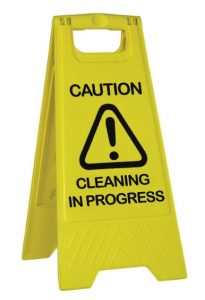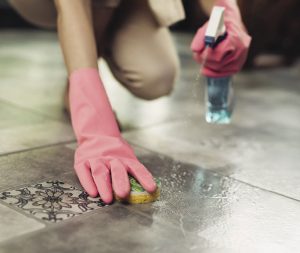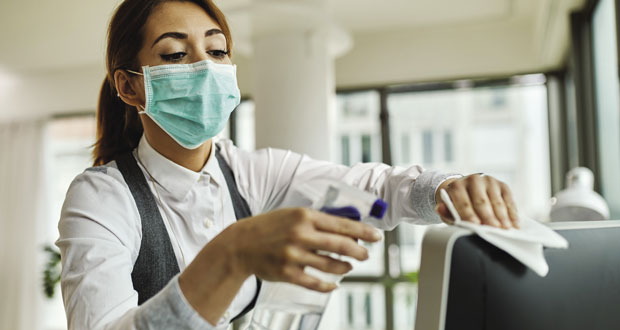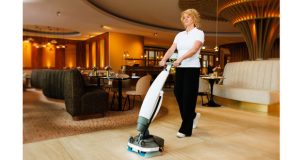CLEANING SUPPLIES
Ponniah also reports that the original rush for hand sanitiser and PPE has diminished over time, but BCC member the Cleaning and Hygiene Suppliers Association (CHSA) an organisation that represents manufacturers and distributors of cleaning and hygiene products, counters that demand for cleaning products does vary from business to business.
While demand for cleaning products for the catering, leisure and hospitality industries has collapsed, leading to employers furloughing workers, other industries continue to be very busy, for example, manufacturers of hand and hard surface sanitiser along with plastic sack, apron and soft tissue makers. With demand for some products soaring while supply has simultaneously shrunk, many companies need to take new measures to carefully manage the exceptional situation.
Mark Jankovich, CEO of Delphis Eco predicts that: “One of the key challenges for businesses will be to ensure the effective supply of hand wash and products for the washroom and ensuring they are clearly displayed, easily accessible and kept topped up and clean, with effective hand dryers situated in close proximity to the sink.
“The stats are widely known – most people only wash their hands for six seconds (not the recommended 20 seconds for COVID protection) and around 33 per cent of people don’t use soap when washing their hands. Clean signage in washrooms to encourage people to wash their hands with soap and the reasons why will be helpful in changing this statistic.
 “Up to 80 per cent of communicable diseases are transferred by touch. … Perhaps what is less well known is that damp hands are 1,000x more likely to spread bacteria than dry hands. Hand hygiene is one of the most important things in the prevention and control of many illnesses and as we all now know is crucial in minimising the spread of COVID-19.”
“Up to 80 per cent of communicable diseases are transferred by touch. … Perhaps what is less well known is that damp hands are 1,000x more likely to spread bacteria than dry hands. Hand hygiene is one of the most important things in the prevention and control of many illnesses and as we all now know is crucial in minimising the spread of COVID-19.”
FUTURE FORECASTS
According to Ponniah, in the future, cleaning services need to be aligned with the way a space is used, with the usage actively measured and services delivered to meet those needs.
He says: “We’ve seen a lot of talk about the positive impact of fogging, deep cleans and making the workplace COVID-secure, but we can’t simply look at a point in time and pat ourselves on the back. Cleaning regimes need to support a COVID-secure approach in workplaces with people operating in them day-to-day, in a situation that may be a reality for quite some time.
“While a workplace, in whatever format, may be clean and hygienic at 9am on a Monday morning, we need to take a proactive and practical approach to ensuring ongoing standards while a space is in use. Implementing a shift to day cleaning, so office users get the psychological benefit of seeing cleaning being done is a positive step, but we need to be able to demonstrate to colleagues that this is somewhere safe for them to be for as long as they are there.
“Cleaning services need to show they are taking health, safety and welfare seriously and data can do that. If they can prove that the canteen is cleaned before peaks in traffic, that a meeting room is cleaned after every use, and that reception has a particular cleaning focus as a high-risk area, and that everything is serviced to a defined and robust methodology, it provides a superior level of reassurance.”
It’s also important to note that major considerations such as sustainability haven’t been discarded due to the pandemic. Jankovich says that Delphis Eco have experienced a significant increase in enquires from potential new clients who are looking to use sustainable cleaning products rather than their previously less sustainable supplies.
He explains: “Buying cleaning and hygiene products from more sustainable brands is becoming more of a priority for many businesses. By embracing less toxic products, there is benefit both for the longevity of the environment and for the safety of their own teams”.
Cleaning has been pushed to front of mind more than ever before says David Hagelthorn, Head of Marketing at Hillbrush: “Adapting to the ‘new normal’ at work means significant investment in cleaning time and resources. The reality is that cleaning costs money; it does not add value to a business and often has hidden financial impacts such as the costs of water, heating, chemicals, corrosion, monitoring and validation of cleaning for some types of operation.
 “We have found that businesses are looking for simple, practical solutions that will make cleaning regimes much simpler to implement and manage and this is reflected in the type of cleaning hardware they are purchasing too.”
“We have found that businesses are looking for simple, practical solutions that will make cleaning regimes much simpler to implement and manage and this is reflected in the type of cleaning hardware they are purchasing too.”
For the moment, BCC members are united in their belief that how the sector operates will change in the future because of the Coronavirus pandemic, and have called for Government action and improved regulation to help their sectors adapt to the ‘new normal’.
Melvin, of the CSSA and BCC, said: “We believe that there is an opportunity for both Government and the industry to review the lessons learned during the pandemic (both good and bad) to collectively increase skills training for operatives. After the vital work they have done during the pandemic, cleaning operatives can surely no longer be considered to be low-skilled.”
(i) http://britishcleaningcouncil.org/
(ii) http://britishcleaningcouncil.org/members-2/
(iii) https://www.ahcp.co.uk





